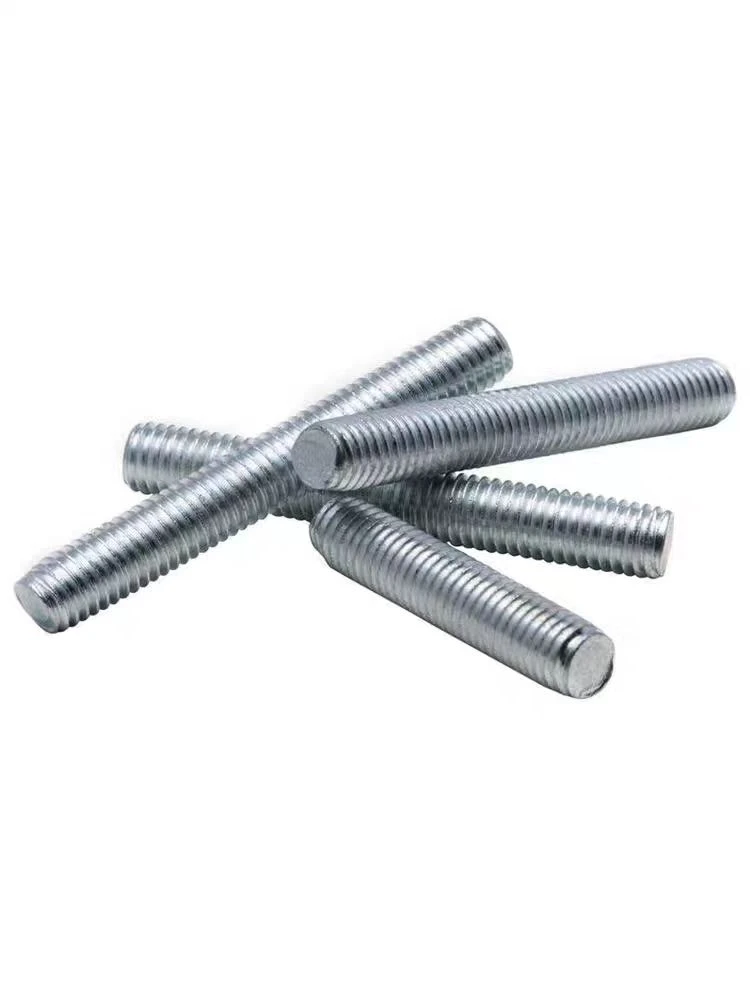

hdg stud bolt
Nov . 24, 2024 16:53 Back to list
hdg stud bolt
Understanding HDG Stud Bolts Applications, Benefits, and Best Practices
In the realm of construction and manufacturing, fasteners play a critical role in ensuring the integrity and durability of structures. Among these fasteners, HDG (Hot-Dip Galvanized) stud bolts hold a significant place due to their strength, corrosion resistance, and versatility. This article delves into the various aspects of HDG stud bolts, exploring their applications, benefits, and best practices for use.
What are HDG Stud Bolts?
HDG stud bolts are fasteners that consist of a long cylindrical piece of metal with threads on both ends. The term stud typically refers to bolts that are used in tension applications, where the goal is to hold parts together securely under load. The hot-dip galvanization process involves coating the steel with a layer of zinc to protect it from corrosion. This method ensures a robust bond between the zinc and the steel, providing a long-lasting protective barrier.
Applications of HDG Stud Bolts
HDG stud bolts are widely used in various industries where durability and resistance to environmental factors are paramount. Common applications include
1. Construction They are extensively used in structural steelwork for buildings, bridges, and other civil engineering projects. Their strength and corrosion resistance make them ideal for load-bearing applications. 2. Marine Industry In marine environments, where exposure to water and salt can lead to rapid corrosion, HDG stud bolts provide a reliable fastening solution that enhances the longevity of structures.
3. Oil and Gas The oil and gas sector often operates in harsh conditions, requiring fasteners that can withstand extreme temperatures and aggressive chemicals. HDG stud bolts meet these demands effectively.
4. Infrastructure Bridges, tunnels, and other infrastructure projects utilize HDG stud bolts to ensure safe and durable connections, crucial for public safety.
Benefits of HDG Stud Bolts
The advantages of using HDG stud bolts over traditional alternatives are numerous
hdg stud bolt

1. Corrosion Resistance The galvanization process provides a protective zinc coating that prevents rust and corrosion, significantly extending the lifespan of the bolts.
2. Durability HDG stud bolts are designed to withstand substantial loads and stress, making them suitable for a variety of heavy-duty applications.
3. Cost-Effectiveness While the initial cost of HDG stud bolts may be higher than non-galvanized options, their longevity and reduced maintenance costs often result in overall savings.
4. Environmental Considerations Zinc is a non-toxic material, making HDG stud bolts a safer choice for projects where environmental impact is a concern.
Best Practices for Using HDG Stud Bolts
To maximize the benefits of HDG stud bolts, it is essential to follow certain best practices
1. Proper Installation Ensure that the threads are properly aligned and that the bolts are tightened to the specified torque to achieve optimal performance.
2. Avoid Dissimilar Metals When using HDG stud bolts with other metals, be cautious of galvanic corrosion. It is advisable to use compatible materials to prevent this issue.
3. Regular Inspections Periodically inspect the bolts for any signs of wear or damage, especially in harsh environments, to address potential issues before they escalate.
4. Follow Manufacturer Guidelines Always adhere to the specifications and installation guidelines provided by the manufacturer to ensure safety and integrity.
In conclusion, HDG stud bolts are an indispensable component in many industries, providing strength, durability, and long-lasting protection against corrosion. By understanding their applications, benefits, and best practices, professionals can make informed decisions that enhance the reliability of their projects. As the demand for resilient construction materials continues to rise, the significance of HDG stud bolts will undoubtedly remain prevalent.
Latest news
-
High-Strength Hot Dip Galvanized Bolts - Hebei Longze | Corrosion Resistance, Customization
NewsJul.30,2025
-
Hot Dip Galvanized Bolts-Hebei Longze|Corrosion Resistance&High Strength
NewsJul.30,2025
-
High-Strength Hot-Dip Galvanized Bolts-Hebei Longze|Corrosion Resistance&High Strength
NewsJul.30,2025
-
Hot Dip Galvanized Bolts-Hebei Longze|Corrosion Resistance&High Strength
NewsJul.30,2025
-
Hot Dip Galvanized Bolts - Hebei Longze | Corrosion Resistance, High Strength
NewsJul.30,2025
-
High-Strength Hot Dip Galvanized Bolts-Hebei Longze|Corrosion Resistance, Grade 8.8
NewsJul.30,2025

